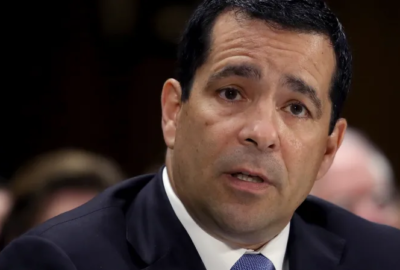
Does TSA have a retention problem?
In today's Federal Newscast, A DHS IG report reveals that a quarter of the 8,000 TSA officers who left the agency in fiscal 2017, left within the first six mont...
To listen to the Federal Newscast on your phone or mobile device, subscribe on PodcastOne or Apple Podcasts. The best listening experience on desktop can be found using Chrome, Firefox or Safari.
- A quarter of the 8,000 Transportation Security Administration officers who left the agency in fiscal 2017 left within the first six months on the job. Department of Homeland Security’s inspector general said TSA spent nearly $16 million to hire and train those officers. TSA said its attrition rate of 17 percent is comparable with other agencies. But the IG said the attrition rate for TSA officers sat at nearly 11 percent for full-time employees and nearly 27 percent for part-time. (Department of Homeland Security Office of Inspector General)
- Veteran employees at the Social Security Administration are being offered early retirement. Federal News Network has learned SSA employees who are at least 50 years old and have 20 years of service have until May 31 to decide if they want leave federal service. They’d need to retire by Aug. 2. The option does not apply to administrative law judges. SSA offered early retirement to employees in 2014 and in 2017. (Federal News Network)
- Another job has been found for the former nominee to be controller of the Office of Management and Budget. President Trump appointed Fred Nutt as the new assistant administrator for management at The U.S. Agency for International Development. Nutt’s been awaiting Senate confirmation for more than 18 months and some Senators had concerns about his qualifications. (White House)
- Twenty three nominees for the State Department get the go ahead from the Senate Foreign Relations Committee. Those officials include ambassadors for Afghanistan and Iraq. The nominations now head to the full Senate for a vote. The committee still has another 40 nominations to act on. (Senate Foreign Relations Committee)
- The Pentagon placed a new leader in charge of its electronic health record rollout. William Tinston is the new Program Executive Officer for Defense Healthcare Management Systems. He will oversee the more then $5 billion MHS Genesis health record project, along with DoD’s ongoing effort to integrate its health IT with the Department of Veterans Affairs. Tinston previously served as a senior acquisition official at the Defense Logistics Agency. He replaced Stacy Cummings, who the Pentagon promoted to a new position as the principal deputy assistant secretary for acquisition.
- Lawmakers said the 2018 Defense Department audit is reason enough for the Pentagon to reduce its $750 billion budget request for 2020. House Armed Services Chairman Adam Smith asked why DoD needs such a high topline number, considering the audit showed the department can’t account for most of the money it spends or its inventory. Smith and other House Democrats proposed instead a $733 billion defense budget for 2020. (Federal News Network)
- Research programs at the energy department have strong congressional backing. At least 115 members of Congress wrote to the House Appropriations Subcommittee on Energy and Water Development and Related Agencies, calling for significant funding increases for the Advanced Research Projects Agency-Energy program, Energy innovation hubs and Energy frontier research centers. The lawmakers are concerned about what they called an alarming trend by the Trump administration placing environmental protection and clean energy innovation programs at risk. (Rep. Don Beyer)
- April kicks off the second annual supply chain integrity awareness month, and it should be a call to arms, said one intelligence community executive. Federal and industry experts called on their colleagues to spend more time on training and education to better understand the risks to the supply chain. Bill Evanina, the director of the National Counterintelligence and Security Center, said the Navy’s recent readiness and resiliency report should be a watershed moment for every organization. The Navy detailed grave concerns about the security of its systems and the technology its contractors use. Evanina said agencies should focus more on training the acquisition workforce to recognize supply chain risks because procurement is the weakest link. (Federal News Network)
- Legislators push to fully staff Customs and Border Protection at ports of entry. Sens. John Cornyn (R-Texas) and Gary Peters (D-Mich.) introduced the Securing America’s Ports of Entry Act. CBP is short nearly 4,000 officers, and supporters say more officers will help make the ports safer and more efficient. DHS Secretary Kirstjen Nielsen this week authorized CBP to voluntarily reassign as many as 2,000 agents and officers to southern border. The Senate bill would explicitly authorize a staffing shortage for all ports of entry, not only the southern border. (National Treasury Employees Union)
- One of DHS’ top career management officials is leaving government. Chip Fulghum, DHS deputy undersecretary for management, will step down in May to join the San Antonio non-profit Endeavors. Fulghum was the DHS chief financial officer for three years before taking on several stints as the department’s acting deputy secretary and acting undersecretary for management. He was an Air Force officer for 28 years before joining DHS in 2012. Fulghum’s departure creates another leadership vacancy within the DHS management directorate. Claire Grady has been serving as both the acting deputy DHS secretary, and the undersecretary for management. (Endeavors)
- Two agencies are taking on the growing problem of phony phoners trying to scam citizens. The Social Security inspector general warned of calls seeming to come from the agency’s fraud hotline. In a public statement, SSA told people to hang up if they hear a threat or promise of official action for personal information. DHS’ Science and Technology Directorate engages small businesses and startups to devise solutions to phone number spoofing, and to help create databases of fraudsters’ voice patterns. (Federal News Network)
- The Small Business Administration will launch a 16-city road tour next month in the hopes of getting local business owners into the federal research and development market. It’s to promote the agency’s Small Business Innovation Research, and Small Business Technology Transfer programs, which provide more than $3 billion a year in early-stage tech funding to 4,000 different projects. Those projects include advances in autonomous systems, advanced materials and cybersecurity. (Small Business Administration)
Copyright © 2024 Federal News Network. All rights reserved. This website is not intended for users located within the European Economic Area.
Eric White
Eric White is news anchor and Federal Drive producer at Federal News Network.
Follow @FEDERALNEWSCAST
Related Stories

Why the Navy is giving agencies, industry a much-needed wake-up call on supply chain risks
Related Topics
Acquisition
Acquisition Policy
Adam Smith
Agency Oversight
All News
ARPA-E
Bill Evanina
Chip Fulghum
claire grady
Congress
Contracting
Customs and Border Protection
Cybersecurity
Defense
Defense Department
Defense Healthcare Management Systems
Defense News
Department of Homeland Security
Department of Veterans Affairs
DHS Science and Technology Directorate
DLA
DoD audit
early retirement
electronic health records
Energy Department
Federal Drive
Federal Newscast
Fred Nutt
Gary Peters
John Cornyn
Kirstjen Nielsen
Management
MHS GENESIS
People
retention
Securing America's Ports of Entry Act
Senate Foreign Relations Committee
Small Business Administration
Social Security Administration
SSA IG
Stacy Cummings
State Department
supply chain
Technology
Transportation Security Administration
U.S. Agency for International Development
Veterans Affairs
William Tinston
Workforce




